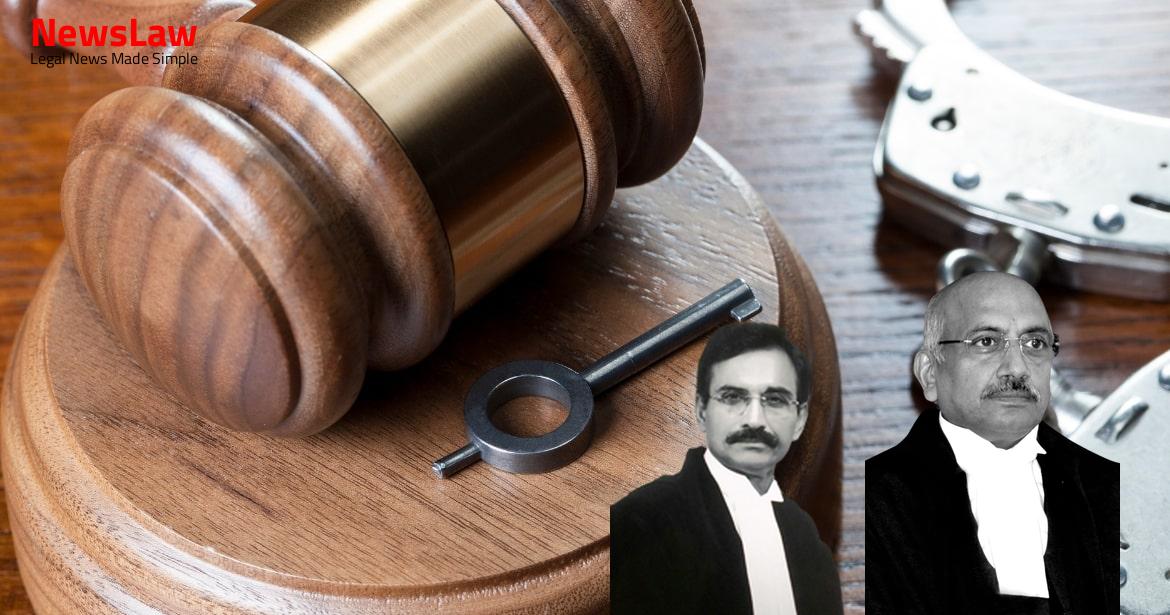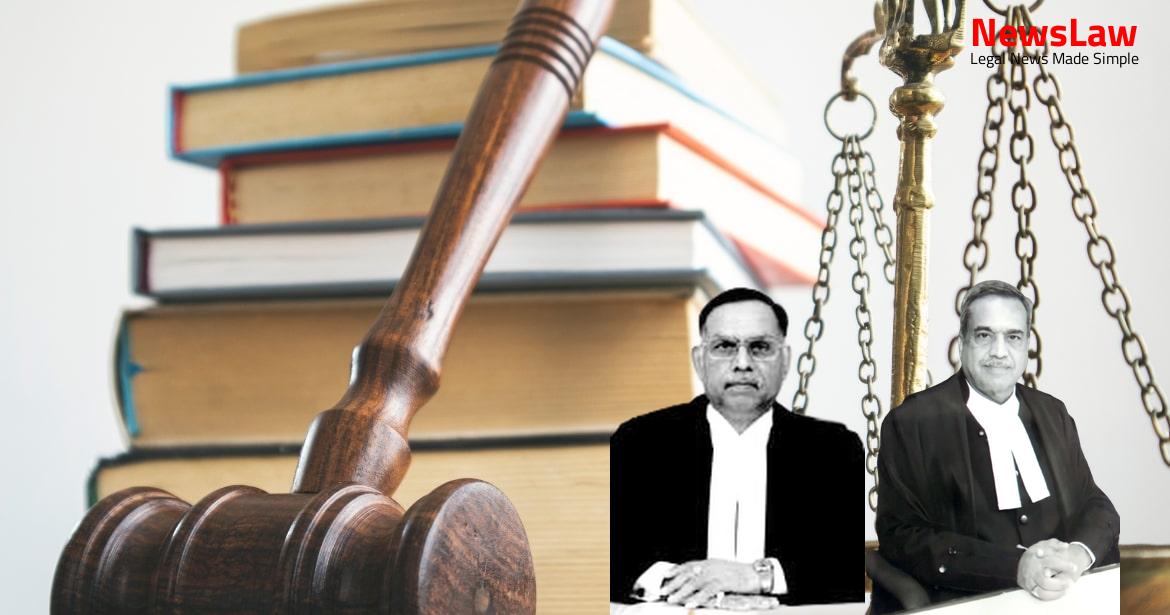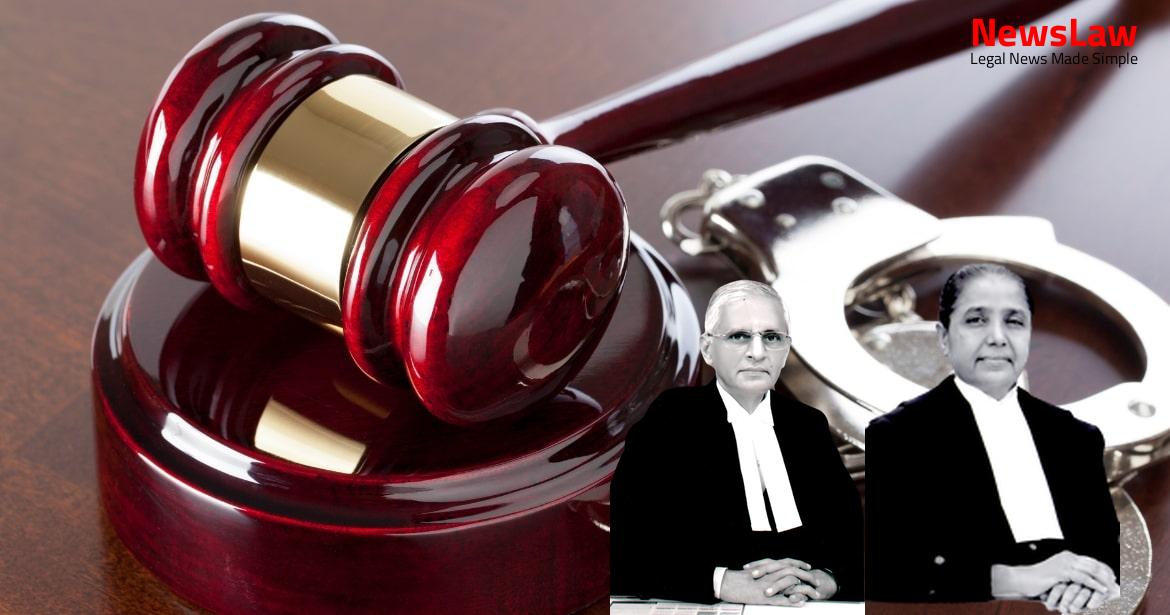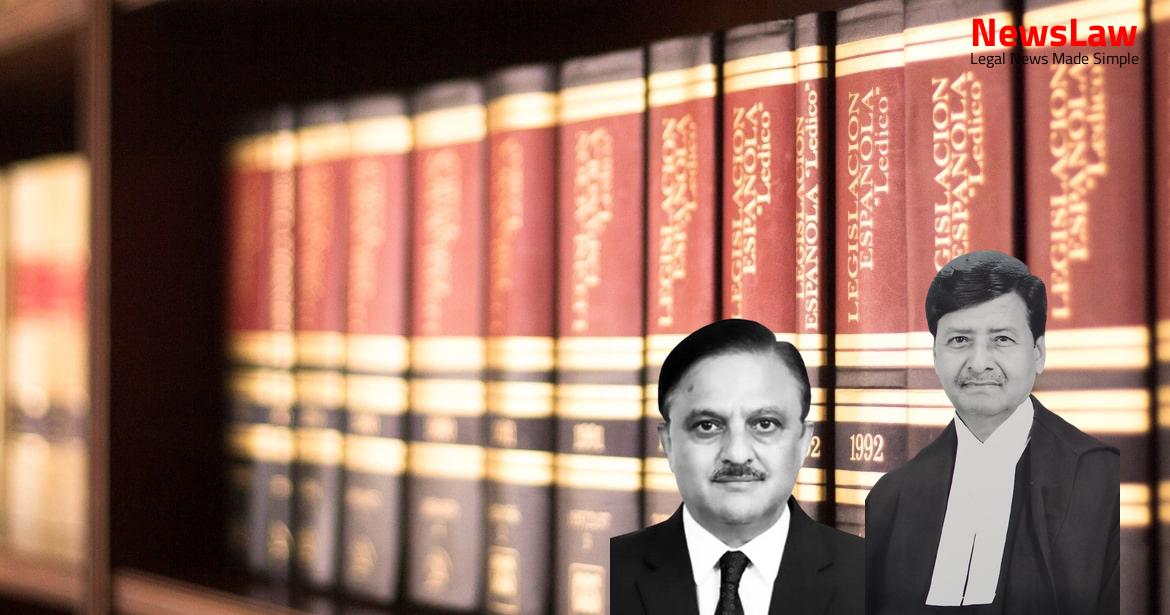In a landmark judgment, the Supreme Court of India has clarified the parameters for the involvement of complainants in criminal proceedings. The case involved the determination of whether the complainant should be granted permission to prosecute offenses under Sections 498-A, 406 read with Section 34 IPC. This judgment sets a precedent for ensuring justice is served while upholding the rights of all parties involved.
Facts
- The respondent No. 2 had sought permission to conduct prosecution under Section 302 of the Code of Criminal Procedure, 1973 for the mentioned offences.
- The Magistrate initially declined permission without providing a reason.
- The High Court reviewed the judgments on the subject and granted permission for prosecution based on the fact that the application was made by an aggrieved party.
- The appeal challenges the High Court’s order dated November 27, 2018, which allowed the respondent No. 2 to prosecute the accused appellants for offences under Sections 498A, 406 read with Section 34 of the Indian Penal Code, 1860.
Also Read: Property Inheritance Dispute: The Legacy of Chhotabhai Ashabhai Patel
Arguments
- High Court not required to give permission to prosecute mechanically
- Permission should not be granted solely based on the request of an aggrieved party
- Prosecution to be conducted by a Public Prosecutor who assists the Court in doing justice
- Public Prosecutor should not be vindictive or biased towards any party
Also Read: Lt. Col. Om Dutt Sharma vs. Ministry of Defence: OROP Entitlement for Army Postal Service Personnel
Analysis
- Section 302 of the Code is similar to Section 495 of the Code of Criminal Procedure, 1898.
- Under Section 301 of the Code, the Public Prosecutor may appear and plead without any authority before any Court in which the case is under inquiry, trial, or appeal.
- Any person may instruct a pleader who shall act under the directions of the Public Prosecutor.
- With the permission of the Court, written submissions may be submitted.
- The Magistrate has the discretion to grant permission to a victim to assist the court in a trial before the Magistrate, even though not bound to do so at the mere asking.
- The victim is not completely excluded from participating in criminal proceedings when the court takes cognizance of offenses based on a police report.
- Section 301 of the Code allows a private person to instruct a pleader to act under the directions of the Public Prosecutor in any trial before any court.
- Section 302 of the Code enables the Magistrate to permit any person to conduct the prosecution for offenses triable by the Magistrate.
- The victim’s right to participate in criminal proceedings, including the right to be impleaded, right to know, right to be heard, and right to assist the court, has been recognized as per the Justice Malimath Committee.
- The High Court granted permission to the complainant to prosecute the trial without examining the parameters laid down.
- The order passed by the High Court and the Magistrate were set aside.
Also Read: Financial Capacity and Specific Performance: A Landmark Judgment by the Supreme Court Of India
Decision
- The matter is remitted to the Magistrate for further consideration.
- The Magistrate will determine if the complainant should be granted permission to prosecute the offences under Sections 498-A, 406 read with Section 34 IPC.
- The appeal has been allowed.
Case Title: AMIR HAMZA SHAIKH Vs. THE STATE OF MAHARASHTRA
Case Number: Crl.A. No.-001217-001217 / 2019



